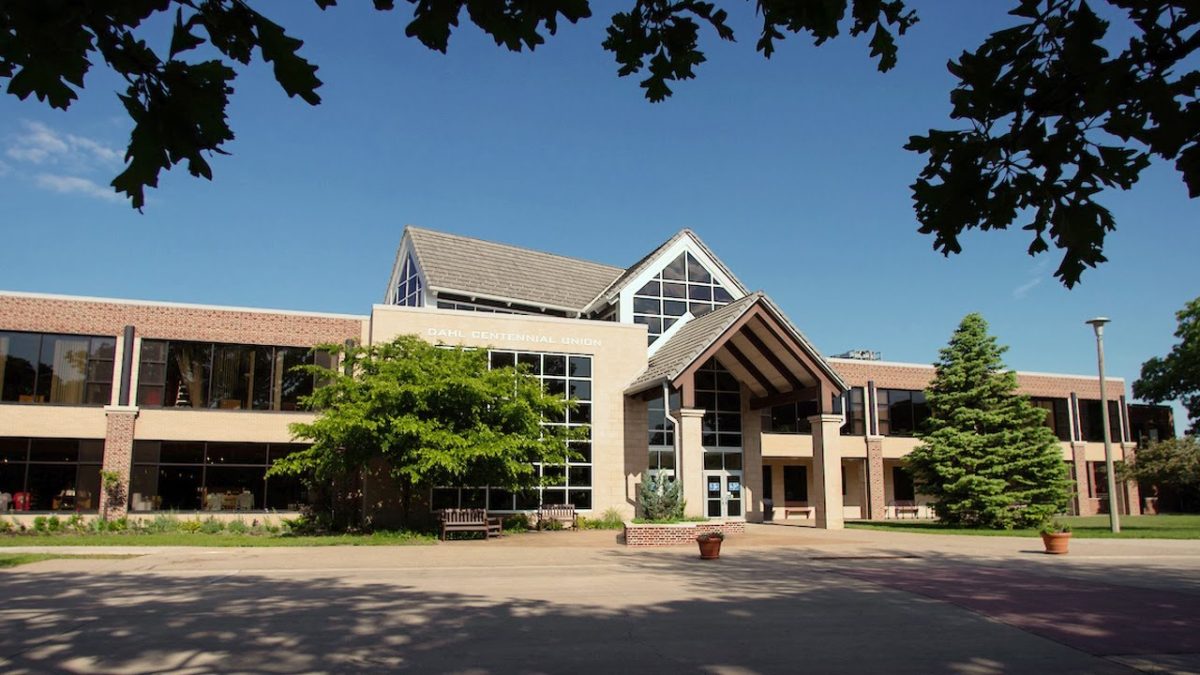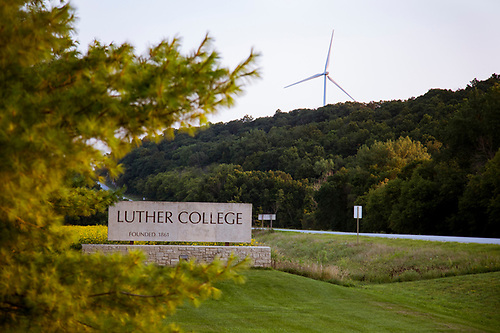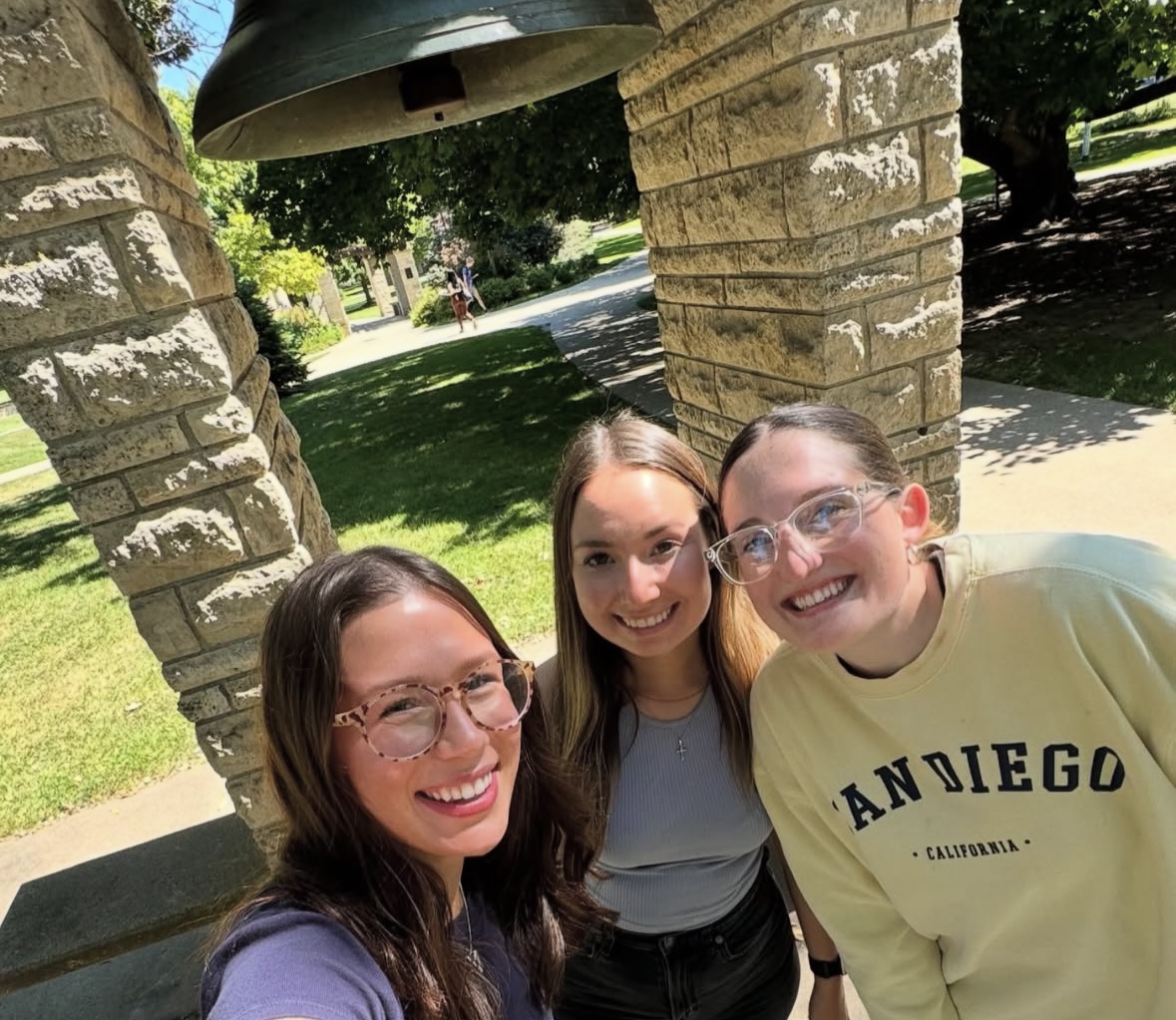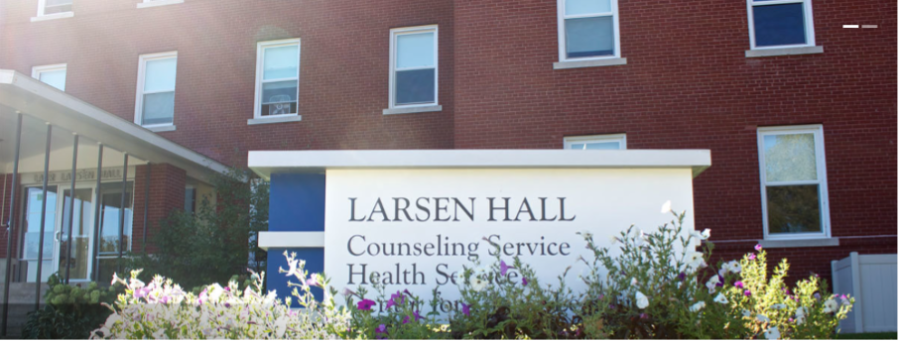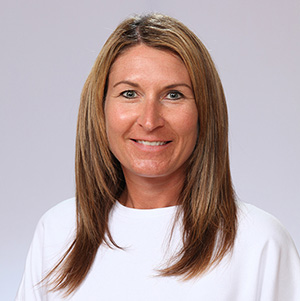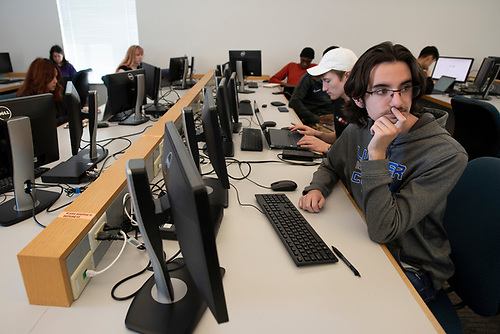On February 13, the Luther Paideia Texts and Issues Series presented a lecture titled “Public Anthropology and the Common Good: Costly Lessons of Bearing Witness to War.” The lecture focused on documenting the impact of war, addressing challenges and ethical considerations, and exploring anthropology’s role in the public domain.
The presentation showcased two speakers, Luther Professor of Anthropology Maryna Nading and Ukrainian educator Liudmyla Skorlupina. It aimed to answer two questions: what sorts of unique lessons can war teach us, and what are some spaces of solidarity paradoxically produced by war, besides its chaos and ruination?
During the lecture, Nading delved into her study on a group of volunteers dedicated to crafting camouflage nets for the military. Skorlupina, originally from Bucha, Ukraine, provided a poignant account of her personal experiences during the occupation of Bucha. Both spoke about the critical role of collective responsibility in fostering peace on a global scale.
“The first lesson of war is perhaps the hardest,” Skorlupina said. “Sometimes terrible things happen, and it is not possible to be prepared for what you cannot imagine. In the hardest moments, things come into focus and you can easily see what everyone stands for.”
The second lesson of war? Skorlupina, who is a current Ukrainian refugee, felt it is the impact of normalcy.
“The importance of simple things,” Skorlupina said. “Our community, the safety of my son, the warm loaf of bread, simply leaving without the threat of violence.”
Associate Professor of History Anna Peterson attended the lecture, and felt Nading and Skorlupina’s academic and personal perspectives provided emotional resonance and depth.
“The collaborative lecture was powerful and moving, speaking to the beautiful and tragic ways people respond to the terrible realities of war,” Peterson said.
The concept of “spaces of solidarity” refers to physical or virtual areas where individuals come together in support of a common cause, particularly in times of conflict or war. War often plays a role in generating such spaces, such as the camouflage net-making volunteer organization Professor Nading spent time researching.
“Ethnographic discussion of camouflage net-making can help us understand this concept of care in a more experienced fashion than we can all relate to, because many of us are not medical providers but yet we are often caretakers,” Nading said.
The camouflage net-making volunteer organization Nading researched, Zahyst, is made up of 20 volunteer groups that came together with a shared goal of producing camouflage nets for military or defense purposes. One of the 20 groups, Maskuty, consists of volunteers who contribute their time and skills to create these specialized nets, which play a crucial role in providing concealment and protection in various tactical situations. Since February 2022, Maskuty has created 2,185 nets for army vehicles, buses, and even a small airplane. They have also made 1,340 camouflage uniform covers.
“War is about care, it’s not just about hate,” Nading said. “It is very unfair but it does have this nice potential to open people’s eyes to things that really matter to them, and it provides almost like a paradoxical relief from superficial things that maybe do not deserve our attention or don’t deserve our worry about them. It is through this painful clarity that it becomes possible to see what the common good might look like.”
“Public Anthropology and the Common Good” was the second lecture in the Paideia Texts and Issues Series, based on this year’s theme of “Uncommon Research for the Common Good.” Members of Luther’s faculty across all academic disciplines have presented their research during these lectures since 1983. Professor of English Amy Weldon gave the first lecture of the 2023-2024 series in October.
The next Paideia Texts and Issues Series lecture is titled “Centering Soil: An Essential And Imperiled Common Good.” It will be given by Professor of Dance Jane Hawley (‘87) and Professor of Biology Jodi Enos-Berlage on April 2, in the CFL Recital Hall from 7:00 to 8:30 p.m.


